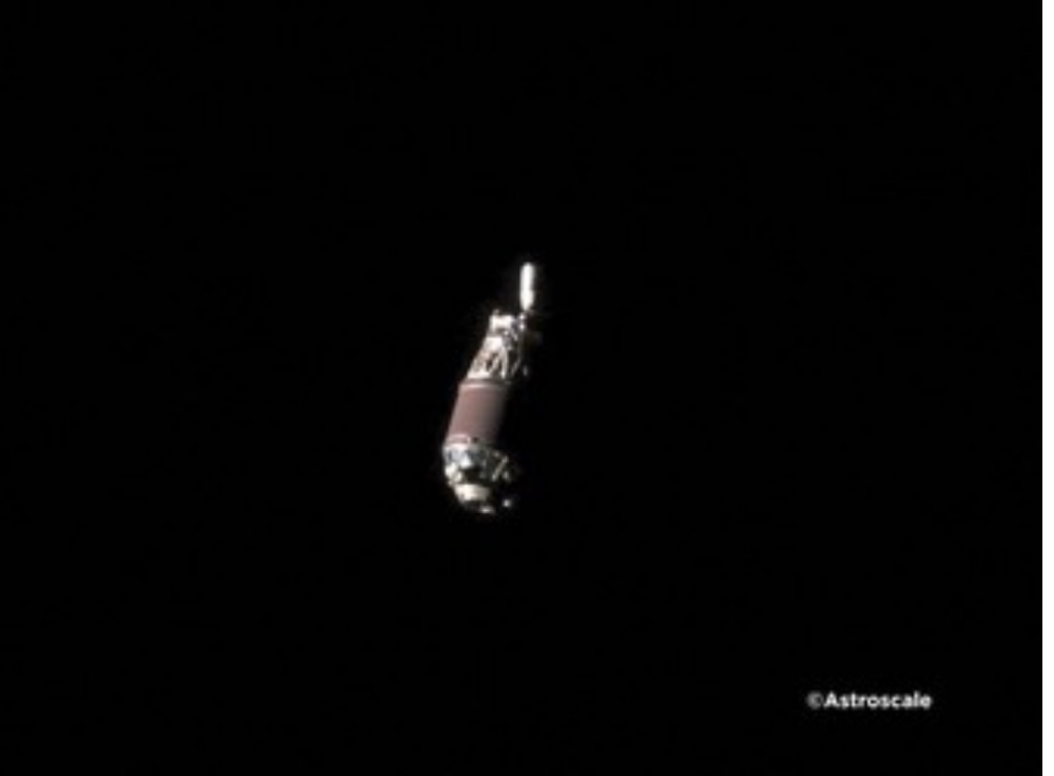Japan reveals ‘world’s first’ close-up space debris image

This photo taken by a demonstration satellite shows rocket debris floating in space. (Photo courtesy of Astroscale Japan Inc.)
Japanese space company Astroscale Holdings Inc. on Friday unveiled what it calls the world’s first publicly released close-up image taken of space debris, hailing it as progress toward understanding the challenges posed by trash orbiting Earth.
The debris — the second-stage section of Japan’s H2A rocket launched in 2009 — was captured by the startup’s cuboid-shaped demonstration satellite, known as ADRAS-J, from several hundred meters away.
Orbiting at high speeds around 600 kilometers above Earth, the section is approximately 11 meters long with a diameter of some 4 meters and weighs roughly 3 tons.
The image shows the object wrapped in brown insulation material as it drifts through the dark expanse of space.
“The unprecedented image marks a crucial step towards understanding and addressing the challenges posed by space debris, driving progress toward a safer and more sustainable space environment,” the Tokyo-based satellite-servicing company said in a press release.
The Japan Aerospace Exploration Agency has confirmed through its analysis that the insulation material, originally orange in color, has turned dark brown due to exposure to intense ultraviolet radiation while in orbit.
In the next phase of its mission, ADRAS-J will approach within a few meters of the debris to observe it rotating in greater detail, as well as how damaged it is and its level of deterioration.
The removal of space debris has become an urgent issue as concerns grow about the potential for dangerous collisions amid a growing number of satellites and rockets in the Earth’s orbit.
Astroscale was founded in 2013 by former Finance Ministry bureaucrat Nobu Okada to offer a commercial service for space debris removal. Its future plans include collecting space debris using a satellite equipped with a robotic arm and burning it up in the Earth’s atmosphere.
ADRAS-J, which stands for Active Debris Removal by Astroscale-Japan, was launched from New Zealand in February.




